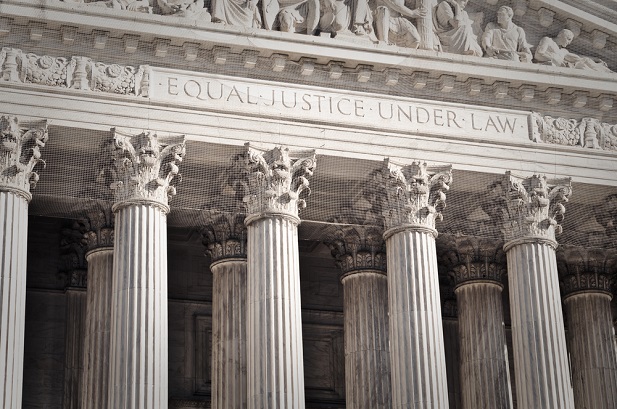 Earlier this year, the Supreme Court declined toreview another 403(b) case, Munro v. USC. (Photo:Shutterstock)
Earlier this year, the Supreme Court declined toreview another 403(b) case, Munro v. USC. (Photo:Shutterstock)
Are simple allegations that the investments in a definedcontribution plan are too expensive enough to sue plan fiduciaries,even if those fiduciaries appear to have made reasonable enoughdecisions?
|That's the question the administrators of the University ofPennsylvania's 403(b) retirement plan are petitioning the SupremeCourt to answer.
|In 2016, Penn's plan was targeted in a rash of simultaneoussuits against jumbo 403(b) plans.
|Participants alleged fiduciaries to the $3.8 billion plan failedtheir obligations under the Employee Retirement Income Security Actby using two recordkeepers that charged asset-based administrationfees, offering a confusing investment lineup of nearly 80 options,and by bilking savers by offering funds and annuities with highfees. According to court documents, investment fees in the planranged from 4 to 87 basis points.
|In 2017, a judge in the U.S. District Court for the EasternDistrict of Pennsylvania dismissed the case. The plaintiffs failedto state a claim, the court said, relying on a 2011 ruling in anERISA case by the Third Circuit Court of Appeals in Renfro v.Unisys Corp, and a 2007 Supreme Court decision in a non-ERISA casethat addressed pleading standards, Bell Atlantic Corp. v.Twombly.
|But in May of this year, the Third Circuit Court of Appealsissued a split decision in favor of the employees in Penn's plan,arguing, in part, that the higher pleading standard the SupremeCourt established in Twombly is specific and limited to antitrustcases, and does not apply to ERISA claims.
|In its petition for review by the Supreme Court, attorneys forPenn's fiduciaries argue that the Supreme Court has rejected theidea that the pleading standard in the Twombly case be limited toantitrust cases.
|In a 2014 decision in an ERISA stock-drop case—Fifth ThirdBancorp v. Dudenhoeffer—the Supreme Court specifically said thepleading standard in Twombly should be applied to ERISA claims,argue the plaintiffs in their petition.
|"The Second, Seventh, Eighth, and Ninth Circuits have allrecognized that Twombly fully applies to these ERISA claims. And itis no accident that decisions in those four circuits have alsodismissed complaints resting on the sorts of allegations that theThird Circuit allowed past the pleading stage here," according tothe petition.
|Earlier this year, the Supreme Court declined to review another403(b) case, Munro v. USC.
|But that petition to the High Court was based on an entirelyseparate question related to arbitration agreements, and was notrelated to the pleading standards in ERISA claims.
|The Penn claim is accompanied by a significant Circuit split onthe basic question of what claims are required for a complaint tosurvive to the discovery phase. Often, Supreme Court will hearcases that resolve different interpretations of the law betweencircuits.
|"This Court should grant certiorari to reaffirm Twombly'sapplicability and resolve the numerous circuit splits created bythe Third Circuit. ERISA's promise of 'uniform standards of primaryconduct' cannot be fulfilled when courts treat identicalallegations differently under inconsistent pleading standards,"attorneys for Penn argue.
|Six universities have settled claims after losing their motionsto dismiss, for an average of $11 million. Attorneys for Penninsinuate those settlements are not a concession of fault, but areadvanced to avoid expensive and lengthy litigation.
|Two settlements came after the Third Circuit reversed the lowercourt's decision in the Penn case. "More will follow if thatdecision stands," argue Penn's attorneys.
Complete your profile to continue reading and get FREE access to BenefitsPRO, part of your ALM digital membership.
Your access to unlimited BenefitsPRO content isn’t changing.
Once you are an ALM digital member, you’ll receive:
- Critical BenefitsPRO information including cutting edge post-reform success strategies, access to educational webcasts and videos, resources from industry leaders, and informative Newsletters.
- Exclusive discounts on ALM, BenefitsPRO magazine and BenefitsPRO.com events
- Access to other award-winning ALM websites including ThinkAdvisor.com and Law.com
Already have an account? Sign In
© 2024 ALM Global, LLC, All Rights Reserved. Request academic re-use from www.copyright.com. All other uses, submit a request to [email protected]. For more information visit Asset & Logo Licensing.








